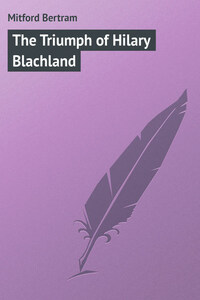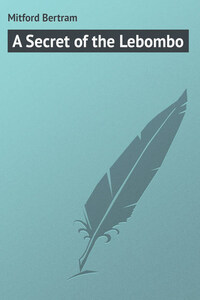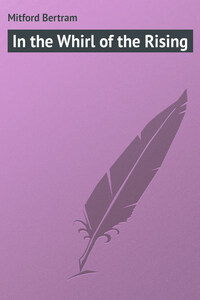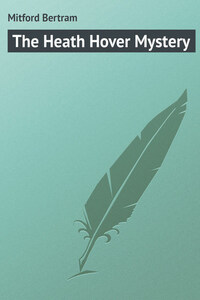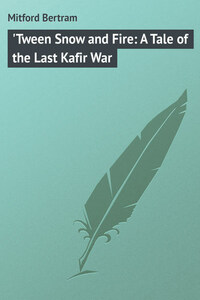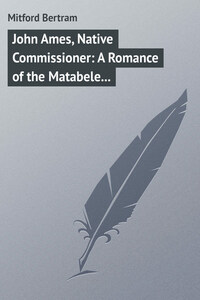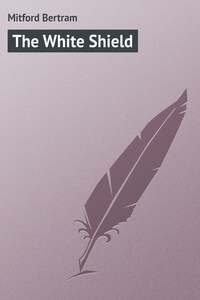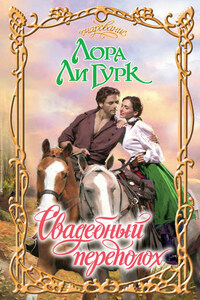Chapter One.
The Camp on the Matya’mhlope
“There! That is Umzilikazi’s grave,” said Christian Sybrandt, pointing out a towering pile of rocks some little way off, across the valley.
“Is it? Let’s go and have a look at it then,” was the prompt reply. But immediately upon having made it, the second speaker knew that he had spoken like a fool, for the first gave a short laugh.
“Go over and have a look at it?” he echoed. “Why we’d all be cut to bits before we got within half a mile. It’s holy ground, man; guarded, picketed by armed majara, rigidly watched, day and night. You couldn’t get near it, no, not at any price.”
“Well, I’ve a great notion to try,” persisted the other, to the imaginative side of whose temperament the place of sepulture of that remarkable savage, the remorseless, all-destroying war-leader, the founder and consolidator of a martial nation, irresistibly appealed, no less than the mystery and peril enshrouding the undertaking did to the adventurous side. “No white man has ever seen it close, I think you said, Sybrandt?”
“That’s so. And you won’t constitute the exception, Blachland. You’ll never get there; and, if you did, you’d never get away.”
“Yet it would be interesting to constitute that exception,” persisted the other. “I like doing things that nobody else has done.”
“Well, even if you escaped the five hundred to one chances against you, you wouldn’t have the satisfaction of talking about it – not as long as you are in this country, at all events; for let even so much as a whisper get about that you had done such a thing, and your life wouldn’t be worth a week’s purchase.”
The two men were riding over the site of the old Mahlahlanhlela Kraal – distinguishable by its great circle of nearly overgrown hut floors, and sherds of rude pottery, erewhile the head-quarters of a favourite regiment of the Great King, whose tomb they were viewing. There it rose, that tomb, away on the right, a great pile standing boldly against the sky – prominent from the outermost edge of the rugged Matopo, all tumbled rocks, and granite boulders and scant tree growth; in front, an undulating sweep, bounded by the Inyoka ridge, the site of old Bulawayo. The two men were dressed in serviceable and well-worn buckskin, and carried rifles. Following a little distance behind them came a group of natives, whose burden, the meat and other spoils of a young sable antelope bull, testified to the nature of the errand from which they were returning.
The countenance of both, darkened by sun and exposure, wore the same expression of blended repose and latent alertness which a roving up-country life seems invariably to produce. Sybrandt – he had dropped the original “Van” – was Dutch by birth, though English by sympathies and associations. Trader, hunter, gold-prospector, adventurer all round, his life had been spent mainly on the confines of civilisation, or far beyond the same; and what he did not know about natives, from the Zambesi to Durban, from Inhambane to Walfisch Bay, nobody else did. He, for his part, was no less known to them. “U’ Klistiaan,” as they called him, in adaptation of his baptismal name, stood to them as a white man who commanded their respect and confidence far and wide. Of cool courage and unflinching resolution, a firm friend, and, while enmity lasted, a determined and dangerous foe, he stood as high in the estimation of the Zulu-speaking races as these qualifications could place him, which is to say at the highest. He was a man of about forty; in outward aspect of medium height and of sturdy and powerful build, his dark hair and pointed beard just turning iron grey. His companion, whom we heard him address by the name of Blachland, was something of a mystery. Nobody knew much, if anything, about him, except that originally he was an English importation with some years of up-country experience, and that he came and went sporadically, disappearing for a time, and turning up again as if he had been away about a week, perfectly unexplanatory, uncommunicative, as to his doings in the interim. He was a tall dark man, who might be any age compatible with a hardy frame and untiring energy. A keen sportsman and keener adventurer, he was ever on the look out for the possibilities underlying up-country life; and, in curious contrast to his normally hard and philosophic nature, was a tendency to fits of almost boyish excitement and recklessness; which would break out when least expected, and with apparently inadequate motive, and which were wont to land their owner in positions of peril or difficulty, but which, by a curious compensating element in nature, were none the less available to extricate him therefrom right at the critical moment.
Now he made no reply to his companion’s very confident and more than ominous forecast. But more than one wistful glance did he send in the direction of the great natural mausoleum. The King’s grave! This rock sepulchre would hold all that was weird and uncommon, and into it no European eye had ever gazed. That was sufficient for one of Hilary Blachland’s temperament.
